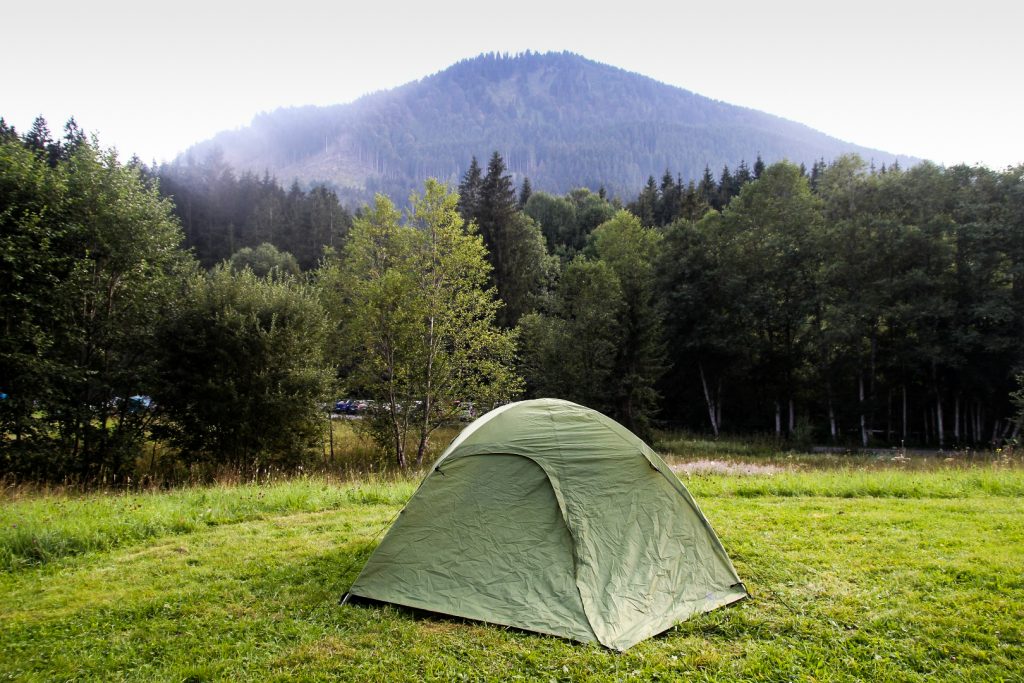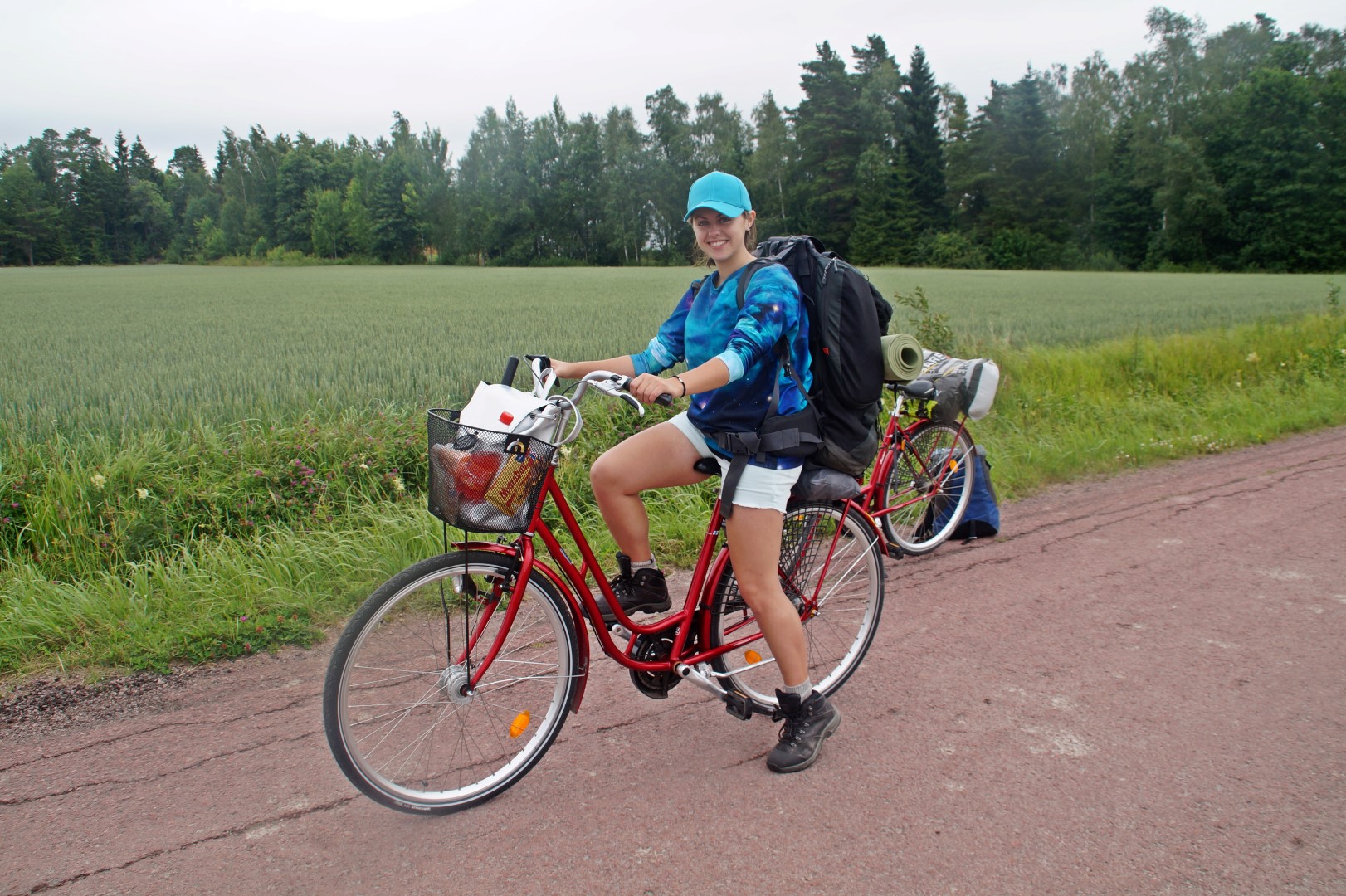I have been reluctant to write this post as I kept hoping for Covid-19 to disappear from our troubled earth. The low case numbers in Europe over the summer gave me hope, but the second wave has begun and it seems that it might be worse than ever this autumn. It seems that Covid-19 has come to stay, and we need to find a way to live with the pandemic.
In the spring, countries all over the world closed their borders. The future of travel was uncertain and many people swore that they wouldn’t leave their country until a vaccine becomes widespread. But over the summer, a few countries started opening up and people – especially Europeans – began travelling again. I was one of them.
The travel industry has been dealt a heavy blow due to the pandemic, and I believe that travelling should resume, for the sake of the industry, for the countries that depend on tourism and for our own sanity and learning. But travelling during a pandemic is different and it needs to be treated as such. I’ve been thinking a lot about how travel can resume in a responsible way during this crisis, because obviously no one wants to be responsible for a new outbreak. Right?
So below are my tips and suggestions on how to travel responsibly during this world crisis. Feel free to add more tips in the comments below!
Reconsider if you should travel
Have you experienced any symptoms related to Covid-19 in the last 7-14 days? Have you been exposed to the virus recently? Are you sharing a household with someone who has experienced symptoms recently? Does your job involve working with or around people at risk for serious illness?
If you answered “yes” to any of the above, please reconsider travelling at this time.
Cancel if you get sick
It’s no shame to cancel your travel plans if you get sick. It’s annoying, yes, but the consequences of you travelling while potentially carrying the disease is a lot worse.
If you do get sick, cancel your plans, stay at home until you feel better, get testet and then reconsider going on your trip.

Get travel insurance that covers Covid-19
Unfortunately, many travel insurance companies don’t include Covid-19 and some even have a separate exclusion policy for claims relating to the pandemic. Check with your travel insurance company and make sure they cover any medical expenses, repatriation costs and cancellation costs related to the virus.
It’s also important to remember that most travel insurers won’t cover you if you travel to places that your government advises against!
Choose your destination wisely and responsibly
When it comes to choosing your destination, think about the impact your visit could have. Are you visiting a neighbouring developed country with similar case numbers and good healthcare? Or are you visiting a place with high case numbers and/or limited health care access?
There’s a huge difference between travelling to a similar country where getting sick won’t cost lives vs. travelling to a place where you getting sick could take away necessary treatment for a local. Unfortunately, many countries prioritize tourists over the local population, so keep that in mind when you’re choosing your destination.
To keep yourself and others as safe as possible, for the time being, stick to nearby countries with low case numbers and a good healthcare system (in my case, as a Dane, an example of such is Germany).
Also, don’t go anywhere that your government advises against or where you’re banned based on your citizenship or country of origin. Loopholes unfortunately do exist and people will use them, but just please don’t. Put the well-being and lives of others before your own pleasure.

Limit your time in public transportation
Planes, busses and trains are all transportation options with high risk of catching the virus as there are often many people in a small space over a long period of time.
Although it’s not great for our fragile environment, cars are the safest transportation mode at the moment. Or better yet – if you have the time and are able-bodied, bike or hike to your destination!
If you do choose public transportation, find a seat by yourself if possible, sanitize and wear that mask!

Choose less popular places for your roadtrip
This summer, everyone desperate to travel hit the roads instead of catching flights, trains or busses. While cars are the safest transportation option during a pandemic, it’s also important to be mindful of the impact we as travellers have on local communities.
A massive influx of cars in touristy areas has left several communities struggling to go about their daily lives.
I’m guily of contributing to this issue myself, as I joined the masses at Neuschwanstein Castle in southern Germany this summer and got stuck in traffic in the middle of the small town below the castle. I can’t imagine how awful it must be for the locals – not to mention the potential risks by having so many people in one spot. So don’t make the same mistake as me. Do roadtrip, but be mindful of where you’re going. Choose less popular areas and wait with the touristy spots for another time!

Choose your accommodation wisely
It’s a given that limiting the amounts of people you come into contact with is key to keep yourself and others safe. When choosing accommodation, keep this in mind.
Sleep in your rental car, in a tent or an airbnb or hotel with contactless check in. If your budget or destination only allows for hostels, make sure you choose one that only uses half of the beds (which many of them do now!), and keep your distance to the other travellers.

Adhere to local restrictions and recommendations
You may not agree with the restrictions of the country that you’re visiting, but you are a guest in their country, and acting like you would at home is rude and might get you into trouble.
While travelling in Germany where face masks in public transportation are mandatory, I noticed many people taking their face masks off whenever their tickets had been checked. Don’t be these guys. Do the right thing, even if you are going against the stream. Your actions might just prevent further spreading.

Keep a safe distance to other people
Backpacking used to be all about meeting other like-minded people, but this part of travel will just have to wait. Get to know yourself by exploring everything yourself – or go with family or friends, but keep a safe distance of at least 1 meter to people you don’t know. And getting drunk with strangers is a no-go!
Steer clear of gatherings
Be prepared to skip a popular sight or two if there are too many people around. Gatherings are known to be potential superspreading events, so your safest bet is to avoid them.

Touch as little as possible
Keep those hands to yourself! Don’t pick up every apple in the supermarket to check them over. Choose one by looking and move on. Touch only what you’re going to buy.
Also, now’s not the time to offer to take people’s pictures or ask people to take yours. Tripods are your friend! If people do ask you to take their picture, politely decline or ask them to sanitize their phone/camera first.
Wash your hands and sanitize… often!
We should’ve been doing this all along, really. It’s gotten to the point now where I feel disgusting if I don’t sanitize or wash my hands immediately after touching stuff that doesn’t belong to me. I hate to think how dirty we all were before sanitizing became a thing!
When travelling, always carry enough hand sanitizer and use it often – every time you enter or leave a shop, café, restaurant or any transportation, and before eating or otherwise touching your face.
Also, don’t forget to cover your mouth and nose with a tissue or your sleeve when you cough or sneeze!

Wear a face mask in busy public spaces – and respect those who can’t
There has been lots of debate on whether or not face masks actually work. Since we don’t know, the safest option is to wear one. It doesn’t hurt to be a little extra careful!
Wear a mask where required by the local government as well as in other busy areas or for example when walking closely past someone. Of course, this doesn’t apply to those who have age, health or disability reasons for not wearing a mask.
And most importantly – do not make snarky comments to those who are not wearing a mask. You don’t know the reason behind their choice.
Dispose of your face mask properly
Travelling responsibly also means taking care of our precious earth and animals. Everywhere I go, I see disposable face masks laying around, just waiting for a bird to get caught up in them.
Because I can’t help myself, I always pick them up and throw them out properly (and sanitize well afterwards!!), but do us all a favour and just put them into an enclosed bin after use (this goes for all of your waste!).

Wipe down any contact surfaces
Always carry tissues with you so you can sanitize any contact surfaces that you may be touching, such as the tray tables in planes, trains and busses.
Keep yourself updated and stay away from areas with outbreaks
As much as I hate reading (bad) news, I kept myself constantly updated while travelling this summer.
The situation is changing every day and local outbreaks keep popping up. Keep an eye on the news, so you know which places to avoid. And remember, large cities are always a higher risk than rural areas!

Get tested only if necessary
Too many people are being tested out of fear or curiosity without having symptoms or being exposed to the virus. Not only is it incredibly expensive and a waste of ressources, but it also results in long queues and waiting times of 6+ hours (this happened in Denmark recently!).
Not only is this incredibly frustrating, it’s also dangerous as it could lead to sick people giving up on being tested.
Consider quarantining when you get home
If you feel sick or have been exposed to the virus while on your travels, quarantine until you feel better and get tested if you experience symptoms.
If an outbreak happens while you’re in a certain area, check with your local government on any steps you should take upon reentering your country.
Yes, you may be losing money for not being able to work, but you could save somebody’s life. And if you’ve chosen to travel, you know that there’s a risk that you could get sick. Your choice – your consequence!

Don’t stigmatize
Treat others as you want to be treated yourself. Don’t stare at someone who’s got a cough (this could be from a general cold, not Covid-19!), don’t make comments at people who don’t wear a face mask, and definitely do not stigmatize individuals based on their ethnicity, citizenship or language! A pandemic is not an excuse for racism and discrimination.
Think about others before yourself
This applies to everyday, even when we’re not in a pandemic, but now more than ever. Think about the health of others before yourself and your pleasure. You may be fit and healthy, but the person next to you or their close relative may not be!
Have fun and spend lots of money locally
Last but not least – have fun on your travels and don’t forget to support local businesses while you’re there. They need your support now more than ever!

Travelling during these uncertain times can still be fun and meaningful, but precautions as mentioned above must be taken. Travelling has changed significantly, but that doesn’t mean it can’t still be a blast. We just need to be more aware of the consequences of our actions now than most of us are used to.
With these precautions in mind, I had a wonderful summer full of adventures in Germany, Austria and Switzerland, and – if nothing changes in the next week – I’ll be heading to the Faroe Islands for the entire month of October. There, I’ll get my first ever test, and if it’s negative, I will be able to support the economy of one of my favourite countries in the entire world while having a blast exploring every mountain on Vágar. I can’t wait!
Read more: Travelling in a Coronaworld: Summer 2020 in Germany
Leave a Comment
Pingback: My September 2020: A perfect trip to Helgoland – Northtrotter on 26/09/2020




1 COMMENT